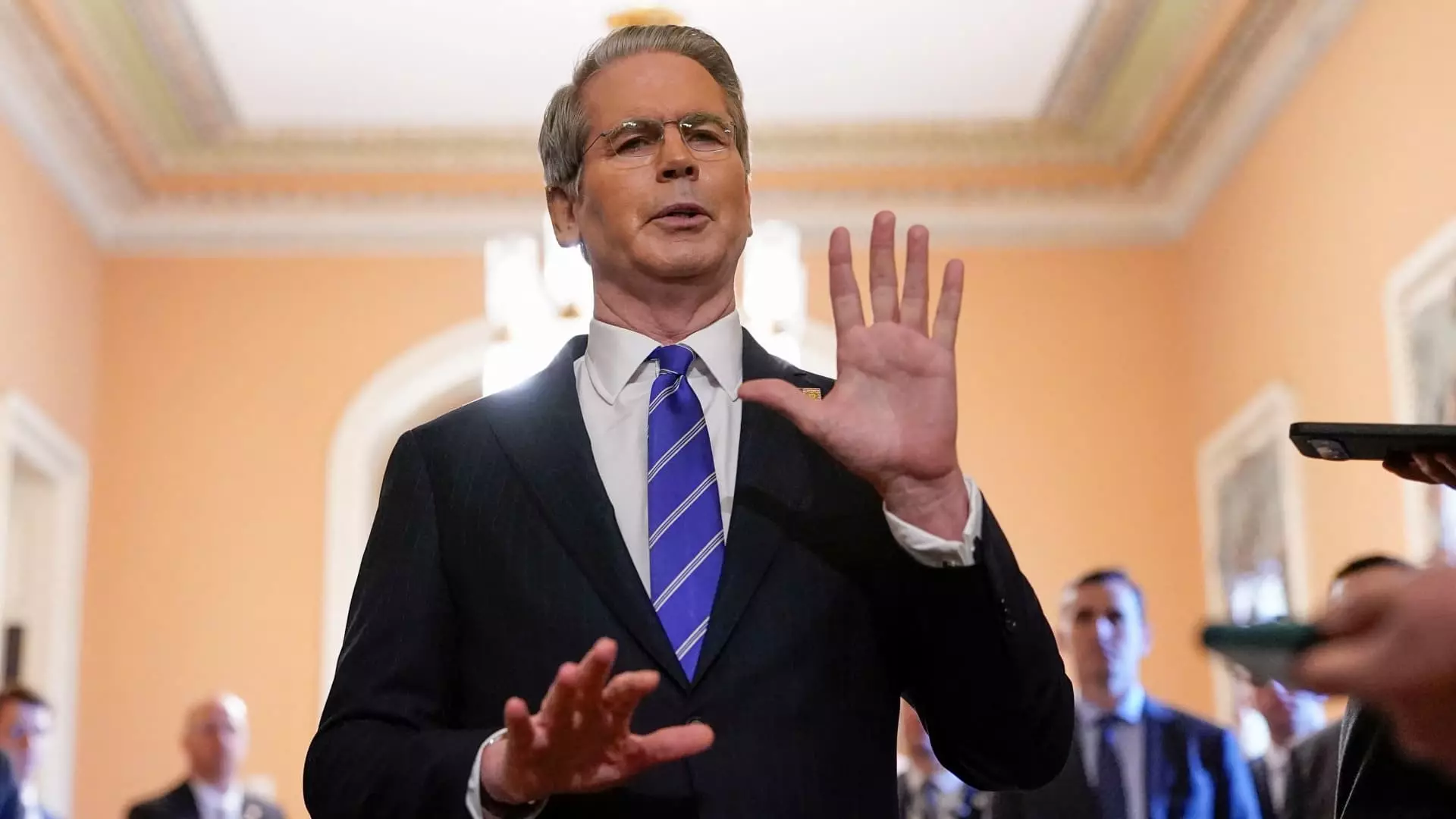The recent statements from Treasury Secretary Scott Bessent reveal a troubling reliance on the tactic of tariff escalation as a bargaining chip. The administration’s plan to revert to previous tariff levels if trading partners do not swiftly comply demonstrates a distressing lack of commitment to constructive diplomacy. Instead of fostering genuine negotiations rooted in mutual benefit, this approach resembles a punitive stance that risks escalating trade disputes into broader economic instability. It is imperative to recognize that such brinkmanship not only undermines international relations but also fosters an environment of uncertainty that hampers global economic growth.
Illusions of Power and the Myth of Quick Deals
Bessent’s optimism about announcing “several big deals” within days appears to be more wishful thinking than a reflection of reality. The administration’s heavy-handed tactics—sending ultimatum letters and threatening reversion to higher tariffs—may create false hope, but they are unlikely to pave the way for sustainable agreements. Experience shows that aggressive tariff threats often sabotage long-term relations, leading to a cycle of retaliation that ultimately damages all parties involved. The notion that swift negotiations will resolve deeply rooted economic disagreements overlooks the complex web of interests that underpin international trade, rendering such claims overly simplistic and dangerously naive.
Risks of Overconfidence in a Fragile Global Economy
From a liberal perspective, the administration’s reckless pursuit of tariff escalations reflects a shortsighted focus on immediate leverage rather than fostering constructive, fair trade practices. Globally, markets are already fragile, and the imposition of tariffs—whether frozen or re-escalated—deepens economic uncertainties. The White House’s silence on the impending tariff hikes raises further concern, suggesting a dismissive attitude toward the potential repercussions. Such policies threaten to harm workers, disrupt supply chains, and erode international trust. Instead of leveraging tariffs as tools for negotiation, policymakers should prioritize diplomatic dialogue grounded in fairness and reciprocity, ensuring that economic stability is not sacrificed at the altar of political posturing.
The False Promises of Rapid Trade Resolutions
While Bessent’s assurances of soon-to-be-announced deals might ignite hope, history advises caution. The recurring pattern of confident declarations often masks the deep-rooted complexities that plague international trade negotiations. The use of tariff threats as leverage can lead to short-term diplomatic wins but leaves the long-term strategic interests compromised. Countries caught in these dynamics risk becoming pawns in a game that favors quick political victories over sustainable economic partnership. Ultimately, confidently asserting rapid resolutions ignores the real, often painstakingly slow, nature of effective diplomacy—a fact that warrants skepticism of the current administration’s approaches.
The Urgent Need for Balanced Policies
In it all, the core issue remains: policies based on brinkmanship fuel economic volatility. As a center-leaning observer, I believe that encouraging honest, transparent negotiations is the only path toward durable, mutually beneficial trade agreements. The danger in relying on tariff threats is that they erode trust and undermine the very relationships necessary for global economic stability. The United States must heed the lessons of history—escalating tariffs as a negotiation tactic often results in retaliation, higher consumer prices, and reduced job security. Instead of weaponizing trade as a political tool, the focus should shift toward pragmatic diplomacy—respectful, fair, and resolute—aimed at fostering a stable economic environment for all.

Leave a Reply